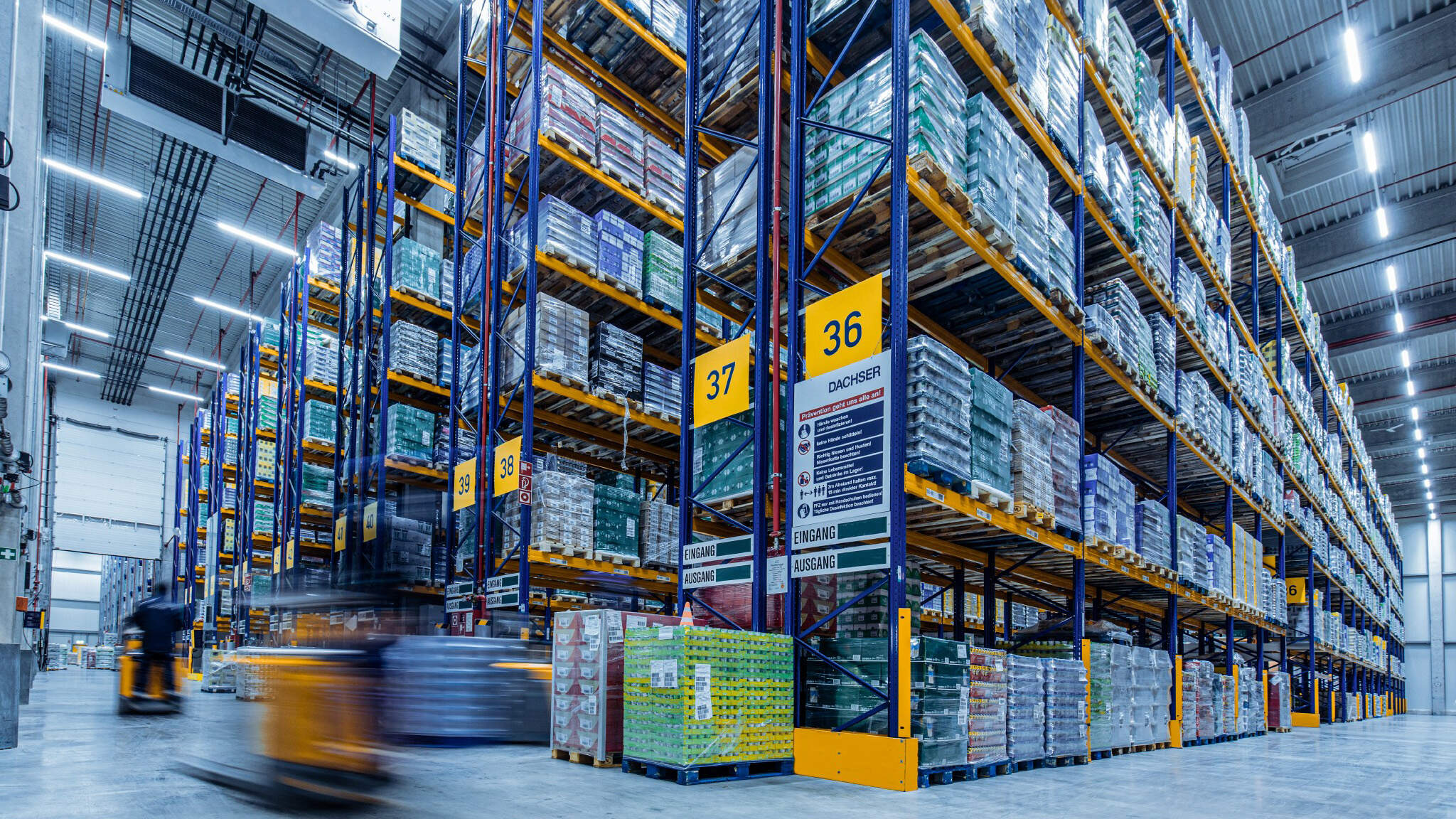Ready to turn insight into action?
We help organisations transform ideas into measurable results with strategies that work in the real world. Let’s talk about how we can solve your most complex supply chain challenges.

As the global economy continues to evolve, businesses across Australia and New Zealand face increasing pressure to adapt their supply chains to a rapidly changing landscape. Trace Consultants, a boutique supply chain and procurement advisory firm based in Australia, is at the forefront of these shifts, helping organisations navigate the complexities of modern supply chain management. Below, we explore seven key supply chain trends poised to shape the industry in 2025 and beyond.

1. Cost Out Programs and Cost to Serve Optimisation
In an increasingly competitive market, reducing costs without compromising service levels is a key focus for organisations. Cost out programs and cost to serve optimisation are essential strategies for achieving this balance, enabling businesses to streamline operations, improve profitability, and enhance customer satisfaction.
Cost out programs involve identifying inefficiencies across the supply chain and implementing targeted initiatives to reduce expenses. Cost to serve optimisation focuses on understanding the true cost of delivering products or services to specific customer segments and making informed decisions to improve margins.
Key Actions for Cost Optimisation:
- Conduct spend analysis to identify high-cost areas and opportunities for rationalisation.
- Leverage advanced analytics to assess cost-to-serve metrics and prioritise profitable customer segments.
- Optimise logistics networks, including warehouse locations and transportation routes, to minimise costs.
- Negotiate supplier contracts to achieve better pricing and terms.
Trace Consultants has helped organisations implement effective cost out programs, delivering measurable savings and improved service levels. By combining data-driven insights with practical strategies, we enable businesses to achieve sustainable cost reductions while maintaining operational excellence.
2. Sustainability Takes Centre Stage
Sustainability is no longer a peripheral concern but a core strategic priority for supply chains. With heightened regulations, consumer demand for eco-friendly products, and organisational ESG commitments, businesses are under pressure to reduce their carbon footprints and ensure ethical sourcing practices.
Consumers and regulatory bodies alike are holding companies accountable for their environmental impact, making sustainability an integral part of business strategy. Supply chains are key enablers of these efforts, as they represent significant opportunities for reducing greenhouse gas emissions and improving resource efficiency. Organisations that fail to prioritise sustainability risk falling behind competitors and alienating stakeholders.
Opportunities for Action:
- Implement circular economy principles, such as recycling and reusing materials to minimise waste.
- Conduct sustainability benchmarking to identify areas of improvement and measure progress against industry standards.
- Leverage technology to track and report on Scope 3 emissions, which include indirect emissions from supply chain activities.
Trace Consultants has supported organisations in adopting sustainable supply chain practices, unlocking both environmental benefits and competitive advantages. By combining strategic insight with practical solutions, we help businesses meet their sustainability goals while improving operational efficiency.
3. Digitalisation and Automation Acceleration
The push toward digitalisation and automation continues to redefine supply chain operations. Advanced technologies such as artificial intelligence (AI), machine learning (ML), and Internet of Things (IoT) are driving efficiencies and improving decision-making capabilities.
Organisations are investing in digital solutions to enhance agility, reduce costs, and improve service levels. The ability to quickly adapt to changing conditions and make data-driven decisions is becoming a competitive differentiator in the supply chain sector.
Emerging Technologies to Watch:
- Low-code/no-code platforms for workflow automation, enabling businesses to streamline processes without heavy IT involvement.
- AI-powered demand planning and forecasting tools to enhance accuracy and responsiveness.
- Robotics and automated guided vehicles (AGVs) in warehousing to optimise inventory management and reduce labour costs.
Trace Consultants has delivered significant results for clients by deploying Microsoft Power Apps-based solutions and Smart Excel tools, helping organisations achieve immediate operational improvements. These technologies enable clients to automate manual tasks, reduce errors, and improve productivity across supply chain functions.
4. Resilience in the Face of Disruption
The frequency and scale of supply chain disruptions continue to grow, driven by factors such as geopolitical tensions, natural disasters, and cyber threats. Resilient supply chains are now a necessity rather than a luxury. Businesses that fail to anticipate and respond to disruptions risk significant financial and reputational damage.
Building resilience involves not only mitigating risks but also creating systems that can recover quickly and adapt to new challenges. This requires a proactive approach to supply chain design and management.
Key Resilience Strategies:
- Diversify supplier bases to mitigate risks associated with over-reliance on specific regions or vendors.
- Build buffer inventories and safety stocks to cushion against supply shocks.
- Invest in real-time visibility tools to anticipate disruptions and respond swiftly.
Trace Consultants specialises in supply chain risk management, helping businesses design robust systems that withstand external shocks. Our comprehensive approach includes scenario planning, risk assessment, and the implementation of resilience-enhancing technologies.
5. End-to-End Supply Chain Visibility
End-to-end visibility is critical for optimising supply chain performance and ensuring compliance. Modern businesses demand transparency from procurement through to last-mile delivery, enabling faster and smarter decision-making.
Visibility tools allow organisations to monitor the flow of goods and information across the supply chain, identify bottlenecks, and implement corrective actions in real time. This level of transparency is essential for meeting customer expectations and achieving operational excellence.
Steps to Achieve Visibility:
- Integrate advanced planning systems to connect upstream and downstream activities.
- Use IoT-enabled sensors to track goods in transit and monitor environmental conditions.
- Implement dashboards for real-time reporting and analytics, providing stakeholders with actionable insights.
Trace Consultants assists clients in deploying visibility tools that enhance connectivity and improve operational outcomes. By leveraging cutting-edge technology, we help businesses gain a competitive edge through improved efficiency and responsiveness.
6. Labour Challenges and Workforce Optimisation
Labour shortages and rising wage pressures are pushing organisations to rethink workforce strategies. Optimising workforce planning, scheduling, and productivity is more critical than ever. Businesses must balance the need for cost control with the imperative to maintain high levels of service.
The COVID-19 pandemic has underscored the importance of having a flexible and resilient workforce. As labour markets evolve, organisations must adopt innovative approaches to workforce management to stay competitive.
Workforce Optimisation Tactics:
- Use AI and ML for accurate demand forecasting, ensuring the right staffing levels across operations.
- Optimise workforce composition by balancing full-time, part-time, and contingent labour to meet fluctuating demand.
- Invest in employee upskilling and training programs to enhance workforce capabilities and reduce turnover.
Trace Consultants leverages its expertise in workforce planning and scheduling to help organisations address these challenges while driving cost efficiency and service excellence. Our tailored solutions enable businesses to align workforce strategies with broader organisational goals.
7. Collaborative Ecosystems and Partnerships
The complexity of modern supply chains necessitates collaboration across stakeholders. Building strong partnerships with suppliers, logistics providers, and even competitors can unlock shared value and drive innovation.
Collaboration enables organisations to pool resources, share risks, and improve supply chain performance. It also fosters a culture of trust and transparency, which is essential for navigating today’s dynamic business environment.
Best Practices for Collaboration:
- Develop joint KPIs and performance metrics to align objectives and measure success.
- Share data securely to improve forecasting, demand planning, and inventory management.
- Engage in collaborative planning, forecasting, and replenishment (CPFR) initiatives to synchronise activities across the supply chain.
Trace Consultants has a proven track record of fostering collaborative ecosystems, enabling clients to create more agile and interconnected supply chains. Our approach focuses on building long-term relationships that deliver mutual benefits for all stakeholders.

Preparing for the Future
The supply chain landscape in 2025 will be defined by cost efficiency, sustainability, technology, resilience, visibility, workforce optimisation, and collaboration. Organisations that proactively embrace these trends will not only stay ahead of the curve but also drive meaningful value for their stakeholders.
Trace Consultants, as a trusted advisor, is uniquely positioned to help businesses navigate these changes. By combining deep industry expertise with innovative solutions, we empower organisations to build supply chains that are resilient, efficient, and future-ready. How prepared is your organisation for the supply chain of 2025? Let Trace Consultants guide you through these transformative trends and ensure your success in an ever-evolving marketplace.
Ready to turn insight into action?
We help organisations transform ideas into measurable results with strategies that work in the real world. Let’s talk about how we can solve your most complex supply chain challenges.








